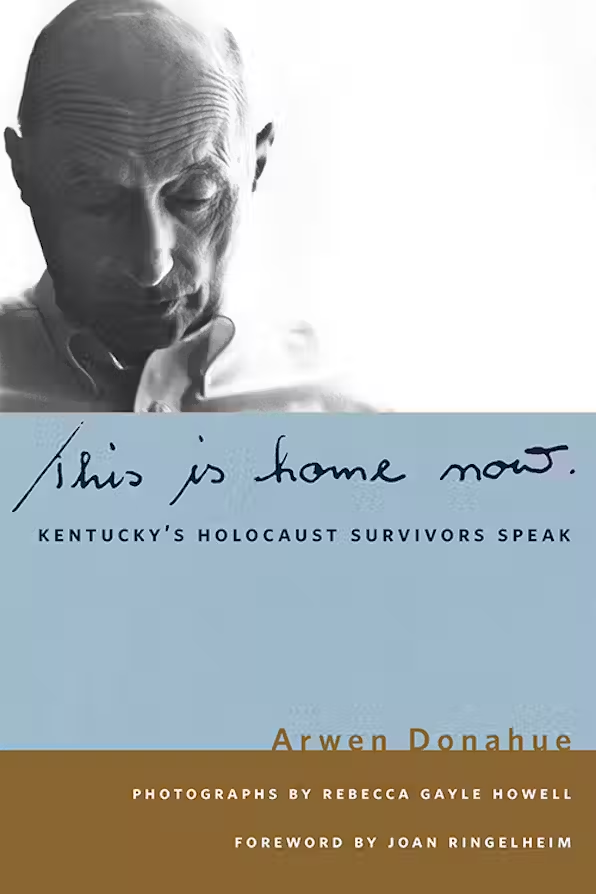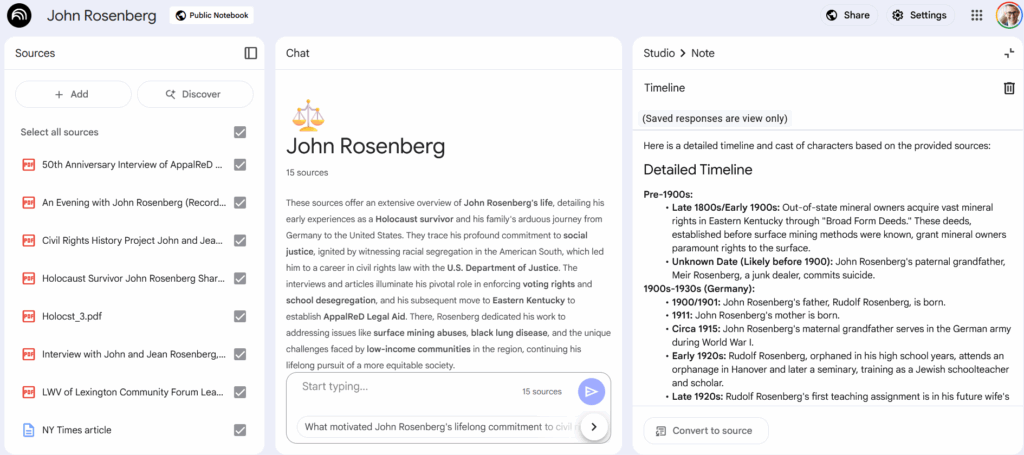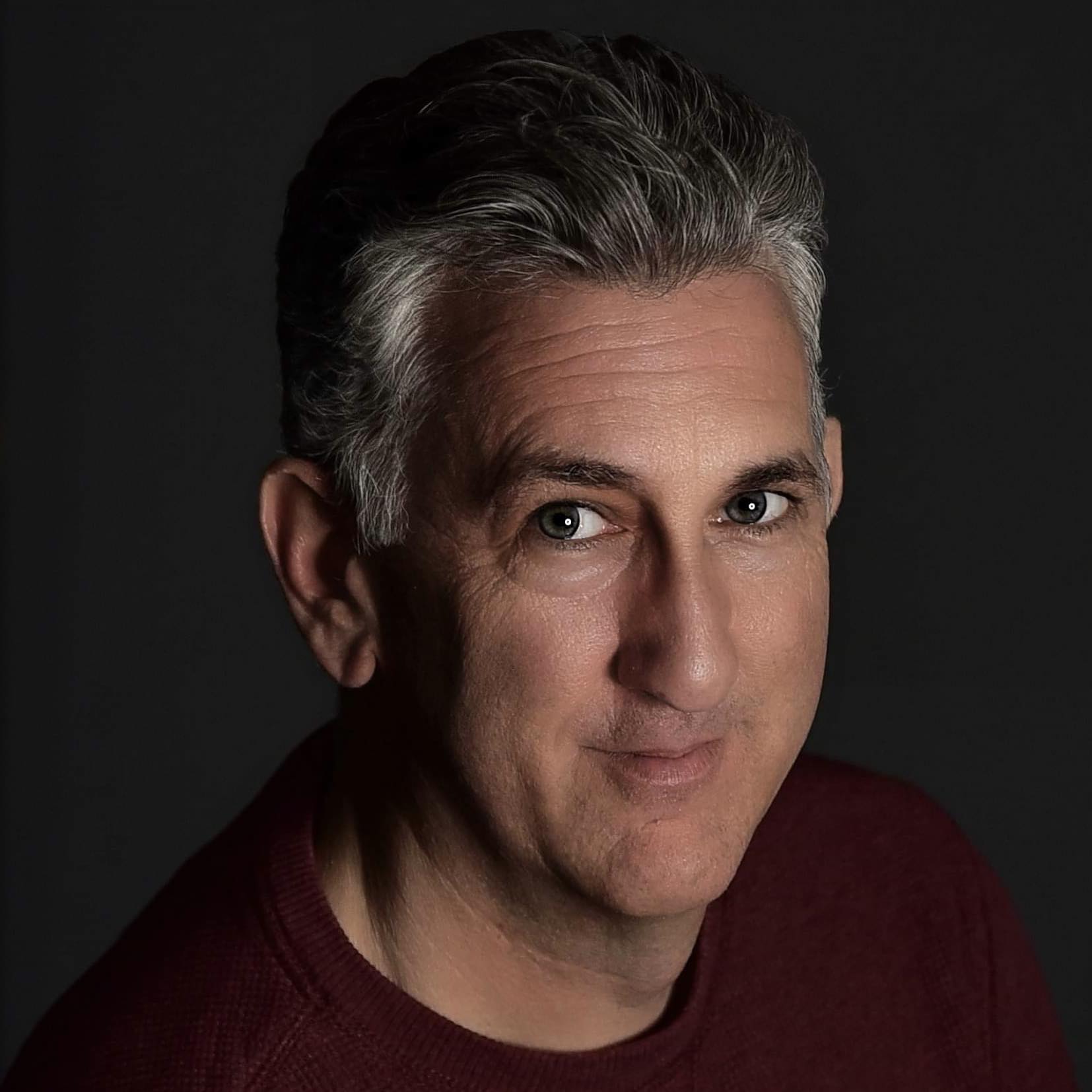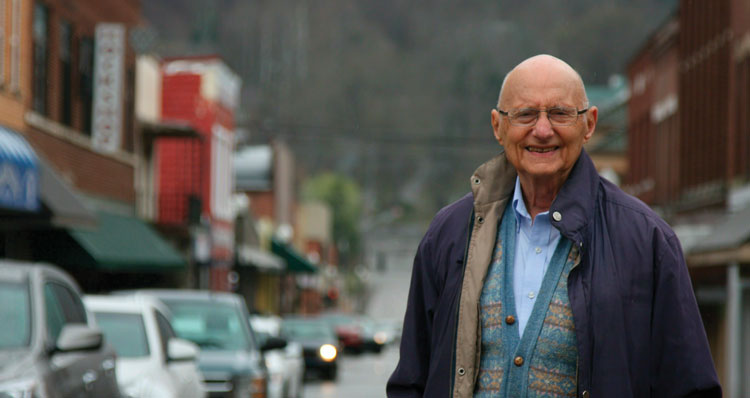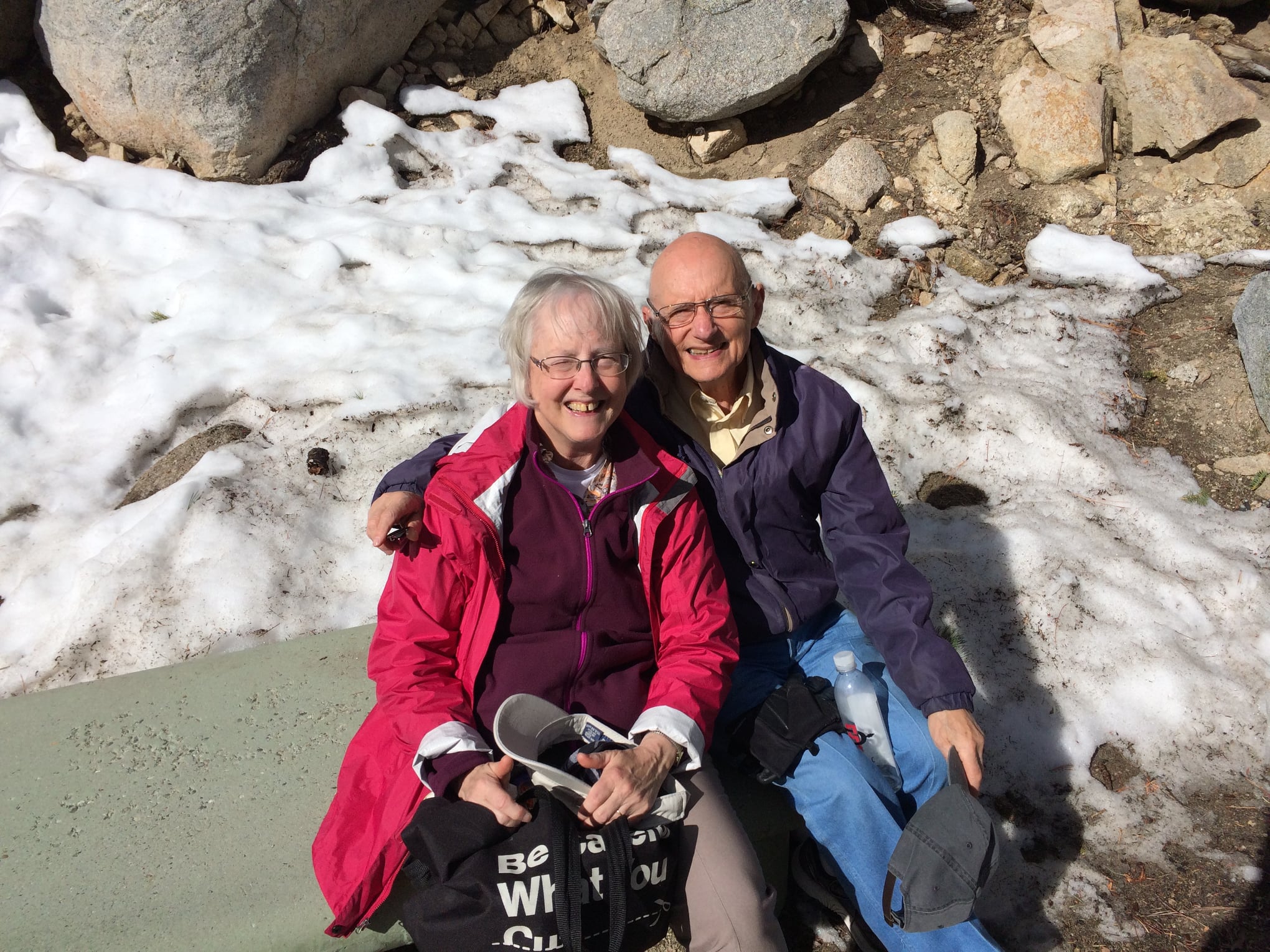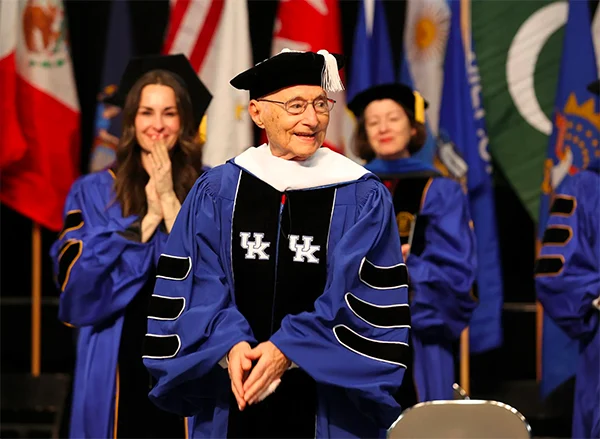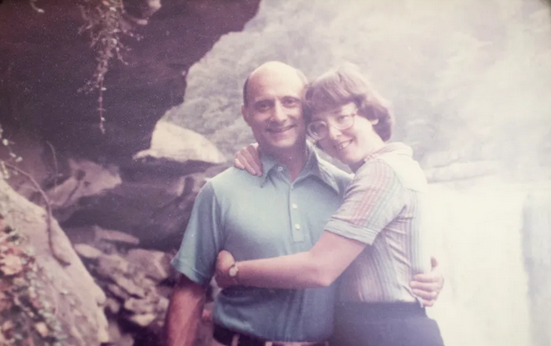John Rosenberg
John Rosenberg, born in Magdeburg, Germany, in 1931, is a Holocaust survivor and a prominent figure in the fight for social justice in America. His early childhood was marked by the escalating Nazi regime, and at just seven years old, he witnessed Kristallnacht, when his family was pulled from their apartment, and the synagogue next door was dynamited. His father, Rudolph (Rudi) Rosenberg, a Jewish schoolteacher, worked tirelessly to secure the family’s escape, eventually leading them to leave Rotterdam, Holland, on one of the last ships to America in February 1940. While John’s immediate family found refuge, much of his extended family perished in the Holocaust, including relatives he had stayed with in Frankfurt and his father’s sister Mary and her four children in Rotterdam.
Once in the American South, Rudi explored serving as a para-rabbi in Spartanburg, SC, and Gastonia, NC, before turning to work in the textile industry. He began as a janitor, advanced into management, and became known both for his skills in the mill and his ongoing service as a lay leader in the Jewish community.
John’s personal experiences deeply influenced his dedication to civil rights. After graduating from Duke University and the University of North Carolina Law School, he embarked on a distinguished career with the Civil Rights Division of the U.S. Department of Justice in 1962. He was involved in numerous pivotal cases, including litigating the first trial under the Voting Rights Act of 1965 in Dallas County, Alabama, and serving on the trial team that successfully convicted Klansmen responsible for the killing of three civil rights workers in Neshoba County, Mississippi, in 1964. It was within the Civil Rights Division that John met his wife, Jean Rosenberg, who worked as a research analyst (now known as a paralegal).
In 1970, John and Jean, along with their infant son Michael, left government service and moved to Prestonsburg, Kentucky, a decision prompted by a former colleague, Terry Lenzner, who suggested they consider working with a new public interest law firm in Appalachia. Here, John co-founded the Appalachian Research and Defense Fund (AppalReD) Legal Aid, an organization dedicated to providing free legal representation to low-income individuals and addressing systemic issues of poverty in the region. Over five decades, AppalReD has provided legal assistance to hundreds of thousands of people and families, handling cases ranging from broad form deeds and black lung disease to Medicaid and food stamp issues, family and consumer problems, home foreclosure prevention, and school funding. Despite initial hostility from some local lawyers who viewed him as a radical, John’s unwavering commitment to the community eventually earned him widespread respect.
Jean, meanwhile, became deeply engaged in community health and education, founding the Big Sandy Childbirth and Education Association. Through prepared childbirth classes, breastfeeding support, and family outings, she touched the lives of countless families—so much so that even decades later, neighbors often recall babies born with the help of her program.
John retired as AppalReD’s director in 2002 but remains highly active, continuing his work for social justice. He and Jean have two children, Michael and Annie, and have navigated their interfaith marriage by blending Jewish traditions like Friday night services and Passover with Quaker practices. John emphasizes that Judaism’s core tenets of “justice, justice shall you pursue” and “tikkun olam” (repairing the world) have profoundly shaped his life’s work. His legacy is one of profound impact, transforming legal services in Appalachia and exemplifying a lifelong dedication to human rights and building a more just society for all.
Recommended Reading
This is Home Now
Kentucky’s Holocaust Survivors Speak
by Arwen Donahue
Photographs by Rebecca Gayle Howell
This Is Home Now: Kentucky’s Holocaust Survivors Speak presents the accounts of Jewish survivors who resettled outside of the usual major metropolitan areas. Using excerpts from oral history interviews and documentary portrait photography, author Arwen Donahue and photographer Rebecca Gayle Howell tell the fascinating stories of nine of these survivors in a unique work of history and contemporary art. The book focuses on the survivors’ lives after their liberation from Nazi concentration camps, illuminating their reasons for settling in Kentucky, their initial reactions to American culture, and their reflections on integrating into rural American life.
